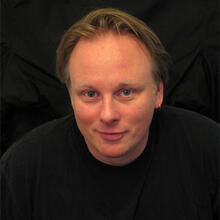In early September I realized that I wasn’t a Christian…or at least not much of one. It was a bit of a jolt actually, considering the fact that I’d always presumed it was a pretty foundational part of my identity and worldview.
My existential epiphany occurred while having dinner with a friend who was an artist and a devout Christian. Not knowing much about Catholics, she asked me about my faith and how it informed my thoughts on art/culture.
Big question.
I mentioned a couple of ideas on the nature of art, courtesy of Jacques Maritain via Flannery O’Connor. But I confessed that I didn’t think that the intersection of faith and culture was a particularly crowded one at the moment. I imagined it to be more like a deserted corner in a forgotten part of town where stray pages from old books by O’Connor, Graham Greene, C. S. Lewis, et al. swirled around in the breeze. I told my friend that the challenge today is to find ways to communicate the substance of belief in a post-textual world that doesn’t see the relevance of faith beyond vague discussions of spirituality. I then pulled out a favorite quote from Walker Percy’s The Message in the Bottle. “Christendom seems in some sense to have failed. Its vocabulary is worn out.”
Big mistake.
“I’m tired of Christians who aren’t willing to proclaim the truth of the “Gospel,” she said, slightly annoyed. She then challenged me to reconcile my comments with numerous truth claims found throughout Scripture. I tried to lighten the mood momentarily by making a cheeky remark about Catholics, evangelization and not really knowing the Bible. (Note to self: the term sola scriptura doesn’t lend itself easily to humor.)
When that failed to defuse the situation, I did what Walker Percy would have done: I took her to the movies.
In John Michael McDonagh’s “Calvary,” Brendan Gleeson plays Father James LaVelle, a parish priest in a small seaport village in County Sligo, Ireland. A widower with a grown daughter, Father James came to his vocation late in life and is, by all accounts, a “good priest.”
In Ireland after the sexual abuse scandal, however, that alone might be enough to get him killed. In one of the most memorable opening scenes from any film in recent memory, Father James is confronted in the confessional by a parishioner who describes how he was raped repeatedly as a child by a priest. He vows to get his revenge by murdering a “good priest” and tells Father James to get his affairs in order and meet him on the beach in a week’s time to be killed.
As Father James makes his normal rounds around the parish during the week that follows the confession, we discover that his parishioners are a contemptuous rogues gallery of characters, all of whom seem to embody some modern-day form of extreme brokenness. Whether it’s the young, murderous, sociopathic cannibal he visits in prison or the misanthropic local doctor or the gay rent-boy who speaks as if he stepped out of a James Cagney film, Father James is confronted by a distorted, insane, fun house mirror vision of humanity at every turn. And yet everyday he’s out among his flock, not as some pious saint but as an imperfect shepherd engaging his sheep as his own day of reckoning draws near.
Though it might sound like a whodunit, “Calvary” actually feels more like the movie version of what Percy called a “philosophical novel.” It’s the film Camus might have made if he were Irish Catholic and still held onto some vestige of belief.
As the credits rolled, my friend and I sat in stunned silence. We eventually made our way back to the street and I broke the quiet. “O.K., so I might not be much of a Christian,” I told her, “but that is about as Catholic a film as you’ll ever see.” She smiled as if contemplating the distinction.
I then stopped and told her I had a confession of my own. “This is the third time I’ve seen the film in the past few weeks,” I said, “and you’re not the first person I’ve dragged to the theater to see it.”
For a moment, she looked slightly confused by my admission, as though she were reconsidering just who this Catholic with such evangelical zeal was.









It's definitely worth it Monica. Not sure if it's still in theaters but if not it should be rentable on demand or DVD soo. Bill McG